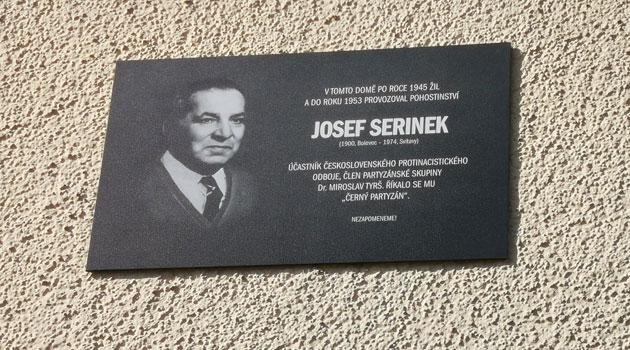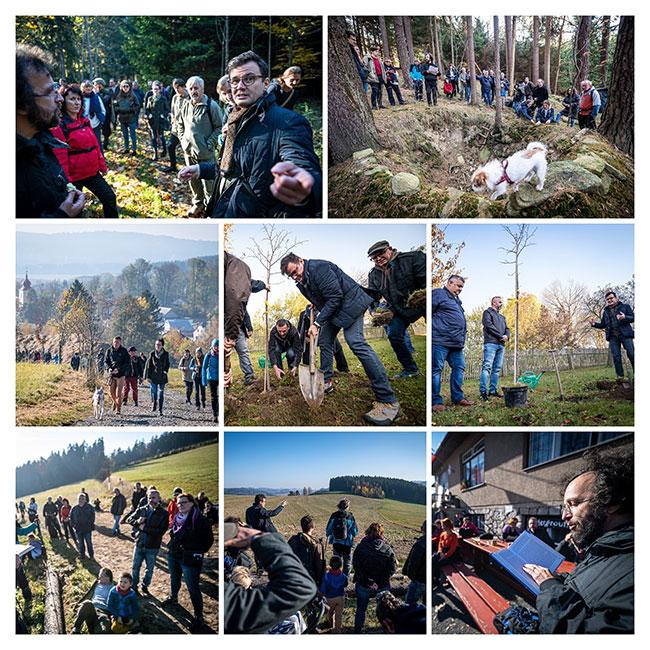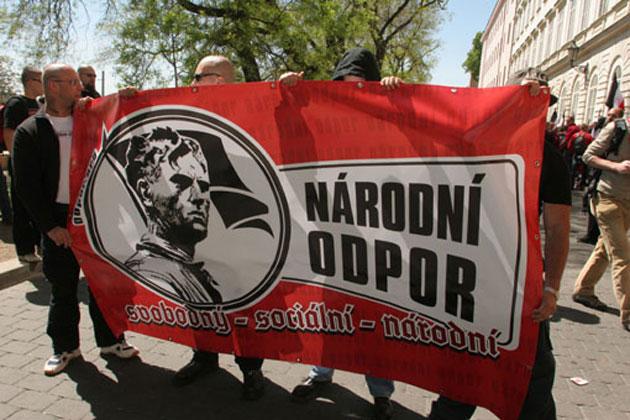Czech activists plant memorial lindens and oaks at places of importance in the life of Romani partisan Josef Serinek

The Vysočina Region of the Czech Republic has an important partisan tradition. During the Second World War, thanks to the generosity of locals who were willing to risk their own lives and those of their families for others, many fugitives and persons in illegal situations were saved in the Czech-Moravian highlands.
These people gradually formed partisan divisions that intervened in the events of the war toward its end. One such fugitive who made a significant contribution to the resistance was the “Black Partisan” Josef Serinek – a Romani man who fled the concentration camp at Lety u Písku and, after an adventure-filled, exhausting journey, found refuge in the environs of Nové Město na Moravě.
Serinek built up an extensive network of connections, attracted many helpers, and organized and constructed hideouts in the forests, including on properties owned by Czech evangelical patriots. He contributed to many military actions, such as the reprisal for the death of General Luža and the liberation of Bystřice nad Perštejnem.
After the war, Serinek married his fellow partisan Marie Zemanová in the evangelical chruch in Polička and lived as a private citizen in Svitavy, where he also had his children baptized in the evangelical congregation. Serinek’s recollections of the war were recorded during the 1960s by the historian Jan Tesař and were published half a century later in an extensive trilogy called Česká cikánská rapsodie (Bohemian Gypsy Rhapsody – Triáda 2016).
The memory of the partisan tradition has undergone several transformations after the war – it was abused at first, when various people who had not been partisans claimed that they had been part of the resistance in order to access various advantages offered by the Czechoslovak Government, and later it was excessively, uncritically celebrated with an empahsis on the Soviet share in the movement’s rise (from that time there still exist memorials to partisans with red stars on them in several locations throughout the country). Logically, that phase was followed by one of disgust at such ideological abuse.
After the Velvet Revolution, the evangelical dimension of the resistance in the Vysočina Region was commemorated (evangelical parsons and many believers contributed to hiding the partisans). Currently, most of the direct eyewitnesses to the events of the Second World War are dead and the partisan past is slowly being forgotten.
The characteristics displayed by the partisans – bravery and persistence – as well as those displayed by the evangelicals who hid the partisans – willingness to risk one’s life to save one’s endangered neighors – are such high moral values that they deserve to be commemorated anew. The stories of their exploits are not artificially created legends, but the truth of what was experienced by the evangelicals in the Vysočina Region.
For that reason these stories are worth commemorating again. Former Czech Education Minister Ondřej Liška, who owns a cottage in the region, and Mikuláš Vymětal, the evangelical parson for minority groups, met recently to discuss the legacy of Josef Serinek.
They decided to hold a pilgrimage in his honor that will include the planting of memorial lindens and oaks at important locations from Serinek’s life story. Since there is an evangelical dimension to his story as a whole, it is not surprising that such locations were frequently evangelical parsonages and churches.
The first such pilgrimage was held on 28 October 2021, the state holiday celebrating the establishment of an independent Czechoslovakia in 1918. The pilgrims walked from Sněžná to Spělkov to Telecí and planted memorial trees along the way, participating in other cultural events as well.
More information about the pilgrimage can be found at www.cernypartyzan.cz (in Czech only). The pilgrimage was dedicated to Serinek and to all the brave people who were active in or supported the anti-fascist resistance in the Horácko area during the Second World War.
The creation and operation of resistance structures was possible thanks to the bravery of local people, who were frequently evangelicals. ROMEA TV broadcast the commemorative ceremony and tree-planting at Sněžná live.
“Josef Serinek, as a Romani man, endeavored not just to defeat the Nazis and liberate the Czech lands, but also fought a personal battle that not everybody shared with him. That battle was the struggle for recognition of him, as a Czech Romani man, as a full-fledged member of Czech society. That battle of his has yet to be won,” Liška told those assembled in the church at Sněžná.
PHOTO GALLERY

